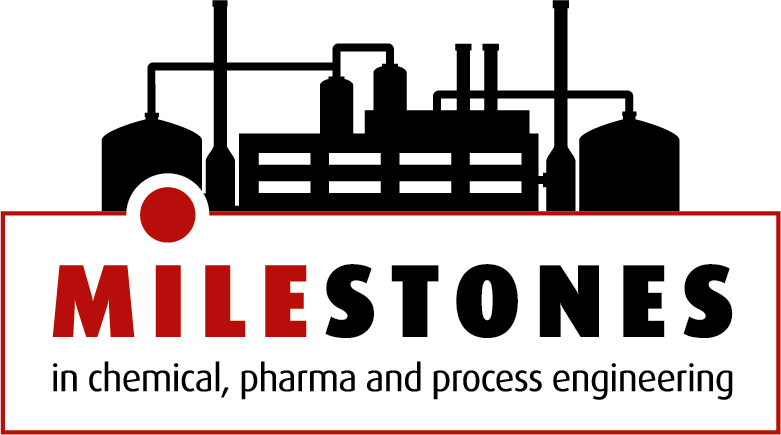:quality(80)/images.vogel.de/vogelonline/bdb/1851700/1851785/original.jpg)
South Korea: Battery Recycling Eco-Friendly Technology Can Extract Lithium from Spent Batteries Without Chemicals
Industrial Company Doosan Heavy Industries & Construction announced that it had succeeded in developing the technology for recovering lithium carbonate by recycling waste batteries.
Related Companies

Changwon/South Korea — Lithium carbonate, a key material that is used in batteries for the generation of electricity and charging of batteries, is widely applied in electronic devices like laptops and mobile phones. The extraction of lithium carbonate from spent batteries is generally achieved by going through the process of heat treatment, acid leaching (acidic solution used for melting of materials) and crystallization, which usually involves the use of chemicals such as sulfuric acid.
Doosan has now developed a new lithium extracting technique that does not require the use of any chemicals. This involves heat treatment of the battery materials, selective separation of lithium using distilled water and the use of electro-absorption crystallization technology to recover the lithium carbonate. According to the company, their technology is more simple and economical than existing methods and is also environment-friendly since no chemicals are used.
Starting in the second half of this year, Doosan plans to embark on various projects, such as a demonstration project for a facility with an annual capacity to treat 1,500 tons of spent batteries and the production of lithium carbonate with a 99 percent purity.
“With the development of this technology, we have now acquired an environment-friendly, resource-saving processing technology that generates noticeably less greenhouse gases compared to the existing lithium mining methods,” said Yongjin Song, CSO of Doosan Heavy Industries & Construction. He added, “We plan to aggressively target the domestic used battery recycling market, which is forecast to grow rapidly to the size of 19,000 tons by 2029.”
(ID:47536144)




:quality(80)/images.vogel.de/vogelonline/bdb/1851600/1851661/original.jpg)
:quality(80)/images.vogel.de/vogelonline/bdb/1850100/1850128/original.jpg)
:quality(80)/images.vogel.de/vogelonline/bdb/1849700/1849740/original.jpg)
:quality(80)/images.vogel.de/vogelonline/bdb/1856000/1856076/original.jpg)
:quality(80)/images.vogel.de/vogelonline/bdb/1855300/1855338/original.jpg)
:quality(80)/images.vogel.de/vogelonline/bdb/1855500/1855596/original.jpg)
:quality(80)/images.vogel.de/vogelonline/bdb/1855200/1855244/original.jpg)
:quality(80)/images.vogel.de/vogelonline/bdb/1854400/1854490/original.jpg)
:quality(80)/images.vogel.de/vogelonline/bdb/1846900/1846946/original.jpg)
:quality(80)/images.vogel.de/vogelonline/bdb/1838300/1838395/original.jpg)
:quality(80)/images.vogel.de/vogelonline/bdb/1836400/1836498/original.jpg)
:quality(80)/images.vogel.de/vogelonline/bdb/1851900/1851933/original.jpg)
:quality(80)/images.vogel.de/vogelonline/bdb/1852100/1852163/original.jpg)
:quality(80)/images.vogel.de/vogelonline/bdb/1849100/1849141/original.jpg)
:quality(80)/images.vogel.de/vogelonline/bdb/1849000/1849052/original.jpg)
:quality(80)/images.vogel.de/vogelonline/bdb/1851000/1851068/original.jpg)
:quality(80)/images.vogel.de/vogelonline/bdb/1850500/1850591/original.jpg)
:quality(80)/images.vogel.de/vogelonline/bdb/1839600/1839675/original.jpg)
:quality(80)/images.vogel.de/vogelonline/bdb/1838400/1838431/original.jpg)
:quality(80)/images.vogel.de/vogelonline/bdb/1856500/1856542/original.jpg)
:quality(80)/images.vogel.de/vogelonline/bdb/1856000/1856071/original.jpg)
:quality(80)/images.vogel.de/vogelonline/bdb/1807900/1807985/original.jpg)
:quality(80)/images.vogel.de/vogelonline/bdb/1797900/1797927/original.jpg)
:quality(80)/images.vogel.de/vogelonline/bdb/1797600/1797603/original.jpg)
:fill(fff,0)/images.vogel.de/vogelonline/companyimg/101800/101879/65.jpg)
:fill(fff,0)/p7i.vogel.de/companies/5f/98/5f98fbb2e7bf2/05-trm-filter-logo-with-slogan-en-alt.png)
:fill(fff,0)/images.vogel.de/vogelonline/companyimg/107800/107832/65.jpg)
:quality(80)/images.vogel.de/vogelonline/bdb/1852500/1852518/original.jpg)
:quality(80)/images.vogel.de/vogelonline/bdb/1856000/1856071/original.jpg)